GregoryBergman
Member
Choosing the right ecommerce platform is crucial for your online business. Pixpa and Shopify are top choices for entrepreneurs. They offer strong digital solutions.
Pixpa vs Shopify shows two different ways to help businesses online. Shopify has millions of merchants and billions in sales. Pixpa focuses on creative professionals with custom solutions.
We'll look at pricing, design, marketing tools, and performance. This is important for photographers, artists, and small business owners. Knowing the differences can help you choose wisely.
Shopify has a wide app ecosystem, while Pixpa has creative tools. Both have strong points for your digital strategy. We'll explore their strengths, weaknesses, and special features. This will help you pick the best website builder for 2025.
At the heart of online stores are platforms that make building websites easy. Shopify has over 800,000 online stores worldwide. It gives businesses strong tools for their digital stores. These platforms help users create professional sites without needing to know a lot about tech.
When picking an ecommerce platform, creatives should look at important features. Things like managing products, secure payments, and easy orders are key. Pixpa, made for photographers and designers, offers special features for selling and showing work.
Platforms are made for different people. Shopify is for many businesses, while Pixpa is for creatives who need easy-to-use sites. The right platform can make your online work easier and more beautiful.
Knowing about these basics helps entrepreneurs choose wisely for their online space. Whether you're a photographer, designer, or small business owner, the right platform can change your online success.
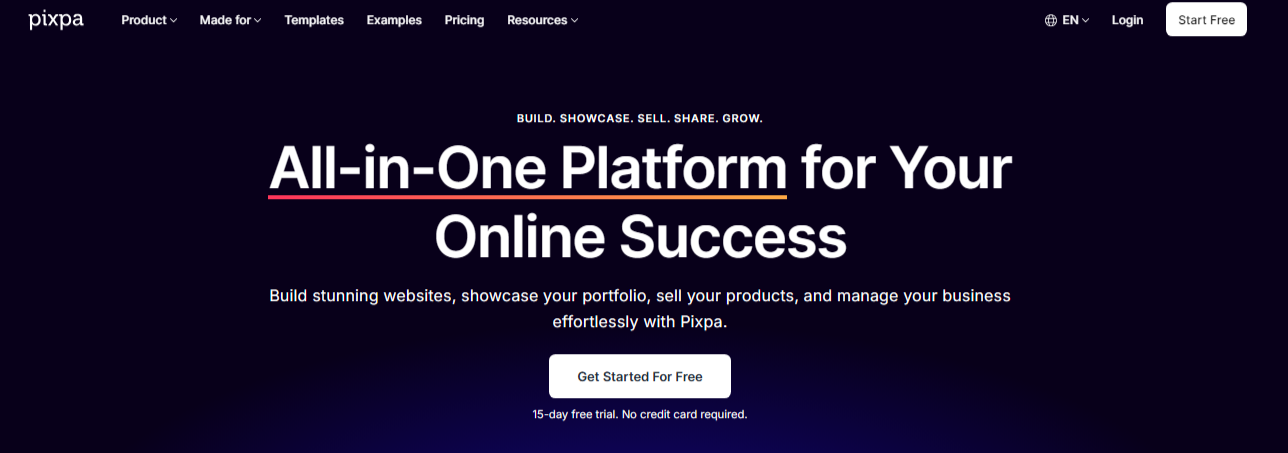
Pixpa is made for creatives, offering 200+ visually appealing templates for photographers, artists, and designers. Its drag-and-drop editor makes it easy to customize, making it a top choice for visual pros.
Shopify, on the other hand, has more advanced ecommerce features. It's better for growing businesses that need complex online stores.
Pixpa is perfect for creatives who want to sell their work. It has 25+ customizable gallery layouts for photographers and artists.
Pricing is different too. Pixpa starts at $3.60 a month, keeping all profits. Shopify has more plans for various business sizes.
Both support mobile designs and marketing tools. But Shopify has better SEO and marketing for big businesses. Pixpa is simpler, great for solo creators and small businesses.
Shopify's prices range from $5 to $299 a month. Each platform offers something special for different needs. Pixpa has four plans: Basic, Creator, Professional, and Advanced. Prices go from $4.80 to $25 a month.
Pixpa lets you try it for 15 days and offers a 30-day money-back guarantee. Shopify's trial is shorter, at 3 days. But it has more features and payment solutions. Pixpa is great for design-focused websites, with over 130 responsive templates.
Transaction fees can really affect your profits. Pixpa doesn't charge any fees, but Shopify does on some plans. This is important for small businesses and solo creators who want to keep more of their earnings.
Both platforms have high ratings from users. Pixpa has a 4.8 out of 5 from 325 reviews. Your choice will depend on your business needs, budget, and what features you want.
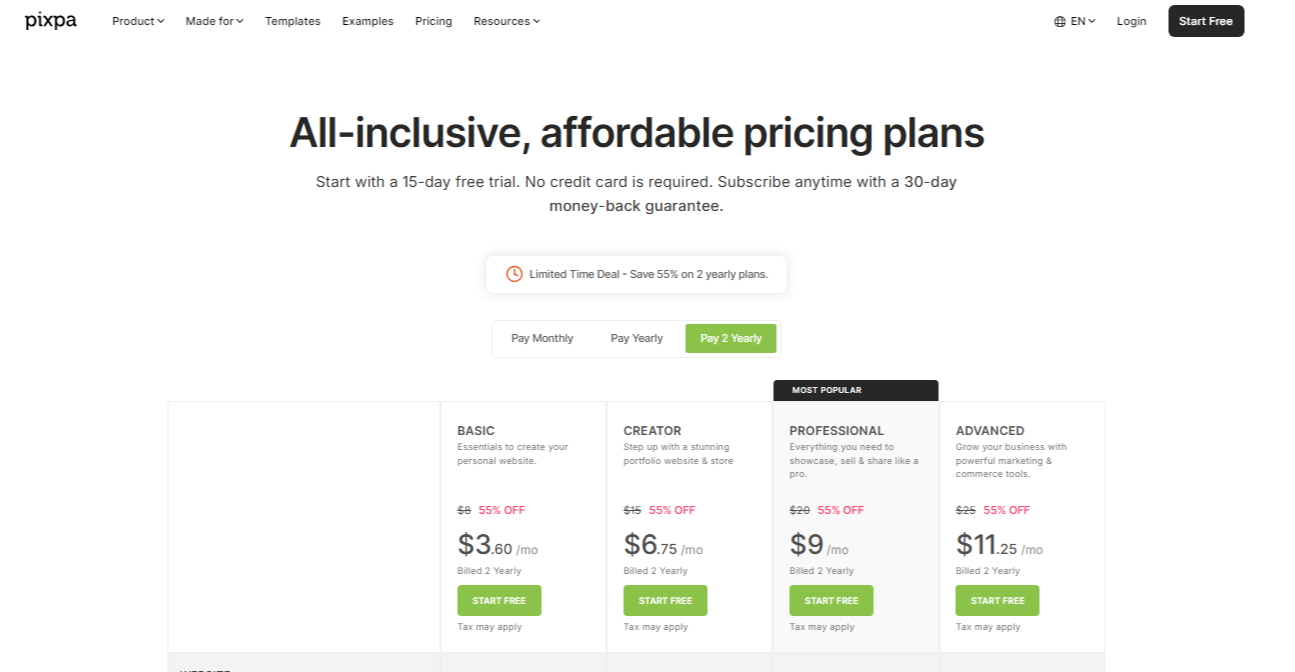
Pixpa's customization tools are easy to use, thanks to a drag-and-drop editor that doesn't need coding. Creative professionals can easily transform their online presence with 200+ mobile-optimized templates and 25+ customizable gallery layouts. This makes your website look professional without being too technical.
Shopify scores 8.2 in design features, with 150+ templates and a powerful theme editor. Although there are fewer templates, they offer great design flexibility for businesses. Shopify's website editor is rated 8 out of 10, showing it's user-friendly.
Both platforms have mobile-responsive designs. But Pixpa shines for creative professionals with its focus on visual aesthetics. Pixpa's ease of use rating is 8.4, making it easy for designers to personalize their sites without needing advanced technical skills.
Your choice depends on your design needs and goals. Pixpa is great for visual presentation, while Shopify is strong in commercial design options.
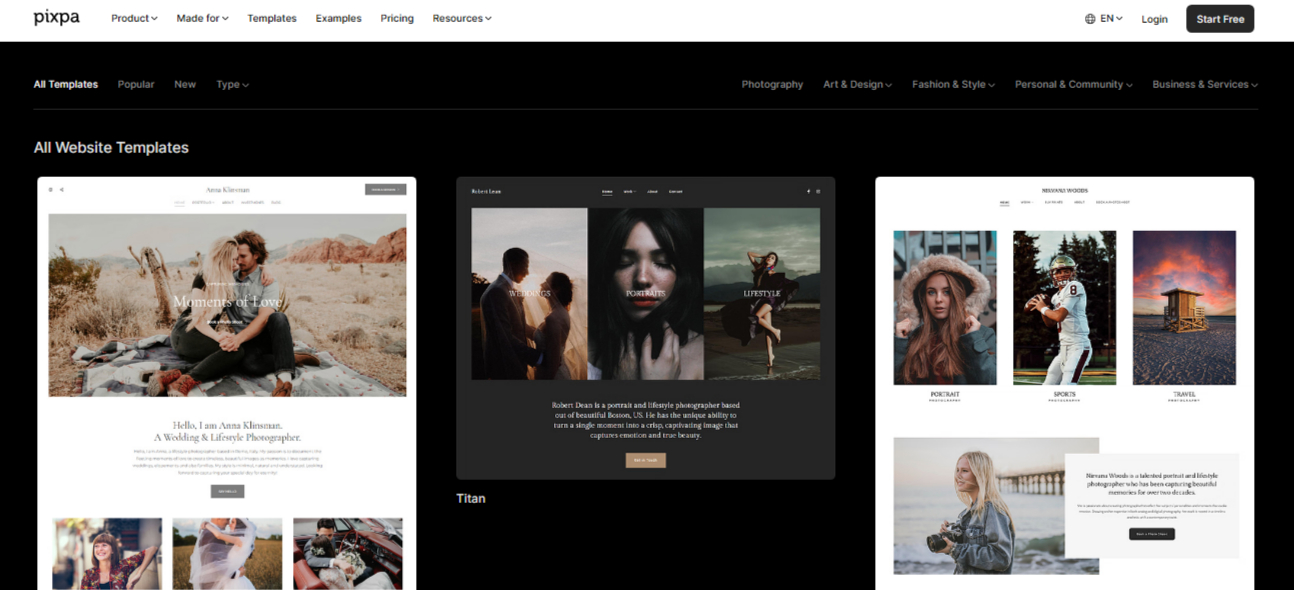
Managing products is easy with these tools. Pixpa makes tracking inventory simple, helping creators manage their digital and physical products well. Shopify goes further with features like cart recovery and selling in multiple currencies.
Payment gateways are key for e-commerce success. Both platforms ensure secure checkout, making customers trust their purchases. Shopify offers many payment options, great for businesses aiming at global markets.
Marketing tools are a big plus for creative pros. Features like discount codes, shipping, and tax management make selling easier. Whether you're a photographer or a designer, these platforms support your online business.
Choosing the right platform is about finding balance. It depends on your business needs and how much complexity you can handle.
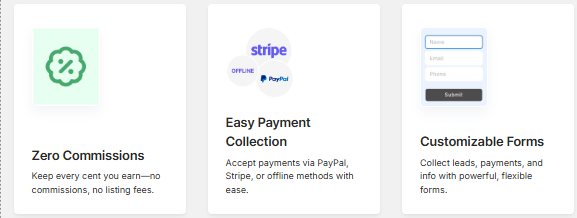
*Client galleries* are key for professional photographers. Pixpa shines with password-protected galleries and personalized photo management. With over 150 mobile-friendly templates, photographers can show their work on any device.
Shopify is mainly for e-commerce, but it has features for creative professionals too. Photographers can use Shopify to make unique portfolio websites. But Pixpa's tools give photographers more control over their visual presentations.
Pixpa's strengths are clear when you look at its features. It offers a 15-day free trial to try advanced portfolio options. Photographers can try out different gallery layouts and see how they share client work.
Pixpa is a top choice for visual storytellers. It focuses on creative professionals, unlike general website builders. This makes Pixpa a great pick for those who want to showcase their work in a sophisticated way.
Pixpa has marketing tools made for photographers and artists. It has blogging tools for *content-rich websites* that draw in visitors. You can also tweak meta descriptions, page titles, and alt text for better search rankings.
Shopify offers more advanced marketing tools. With over 7,500 apps, you can grow your marketing toolkit. It's great for selling on Instagram and Facebook. Plus, it has strong email marketing and app integrations to find new clients.
Both Pixpa and Shopify aim for *seamless marketing strategies*. Pixpa is about clean, professional sites. Shopify is about broad marketing and selling in many places. Your choice depends on your business needs and how tech-savvy you are.
Pro tip: Use these platforms' SEO tools to get your site seen more. Whether you pick Pixpa's focused tools or Shopify's wide range, smart digital marketing can really help your online success.
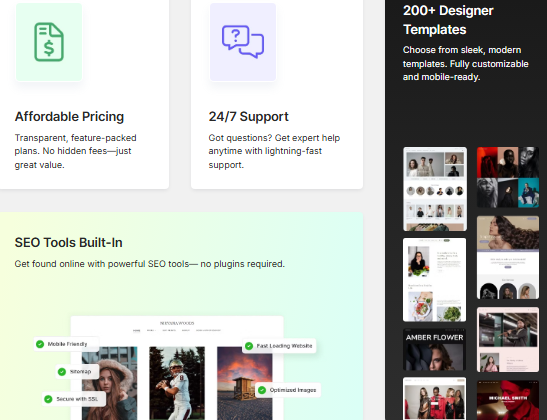
Pixpa's customer support is known for being super fast. Their help center is always ready to help, with live chat answers in just 3 minutes. This quick help lets users fix problems fast.
Shopify also offers great support. They have a huge help center with lots of resources. You can get help by email, live chat, or phone. They make sure you can solve any problem.
Both Pixpa and Shopify know how important learning is. They have lots of tutorials, videos, and help to get you started. This turns technical support into a chance to learn and grow.
Users will love how easy it is to get help. Whether it's a design issue or e-commerce questions, they offer simple support. You don't need to be a tech expert to get help.
When deciding between Pixpa and Shopify, think about their support. Look at what you need, how you like to communicate, and the tech challenges you might face. This will help you make the best choice.
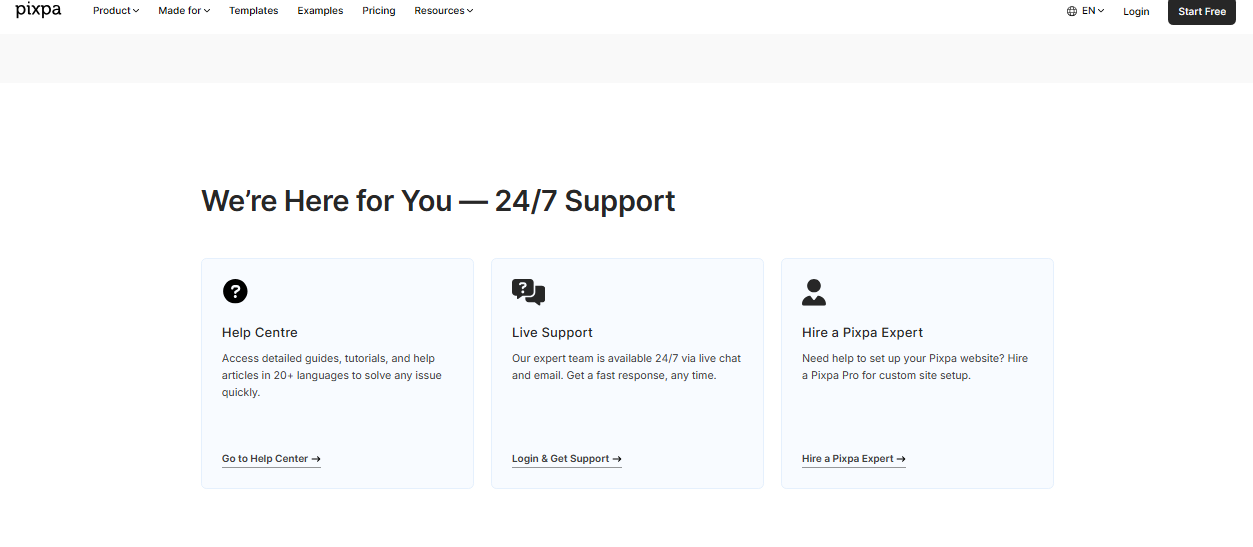
Pixpa shines with intelligent template optimization. Their sites change how they look based on the device you use. This means your site looks great on phones, tablets, or computers. Plus, pages load fast, keeping visitors interested.
Shopify also focuses on mobile-friendly themes for a smooth user experience. They know fast sites keep people coming back. With most internet use now on mobiles, they work hard to make sites fast and look good.
Looking at how well these platforms do, Pixpa scores high. It has a 93% overall score and an 84% hosting performance rating. These numbers mean better mobile experiences for your visitors.
When picking between Pixpa and Shopify, think about what you need for mobile. Both offer advanced tools for responsive designs. They make sure your site works well on all devices.
Shopify has a huge app ecosystem with thousands of integrations. These cover marketing, sales, and productivity tools. *Creative professionals* can add social media, analytics, email marketing, and customer service apps easily.
Pixpa offers a smaller but more focused set of integrations. These are chosen to meet the needs of photographers, designers, and artists. Users can connect tools like Google Analytics, social media, and email marketing services to enhance their online presence.
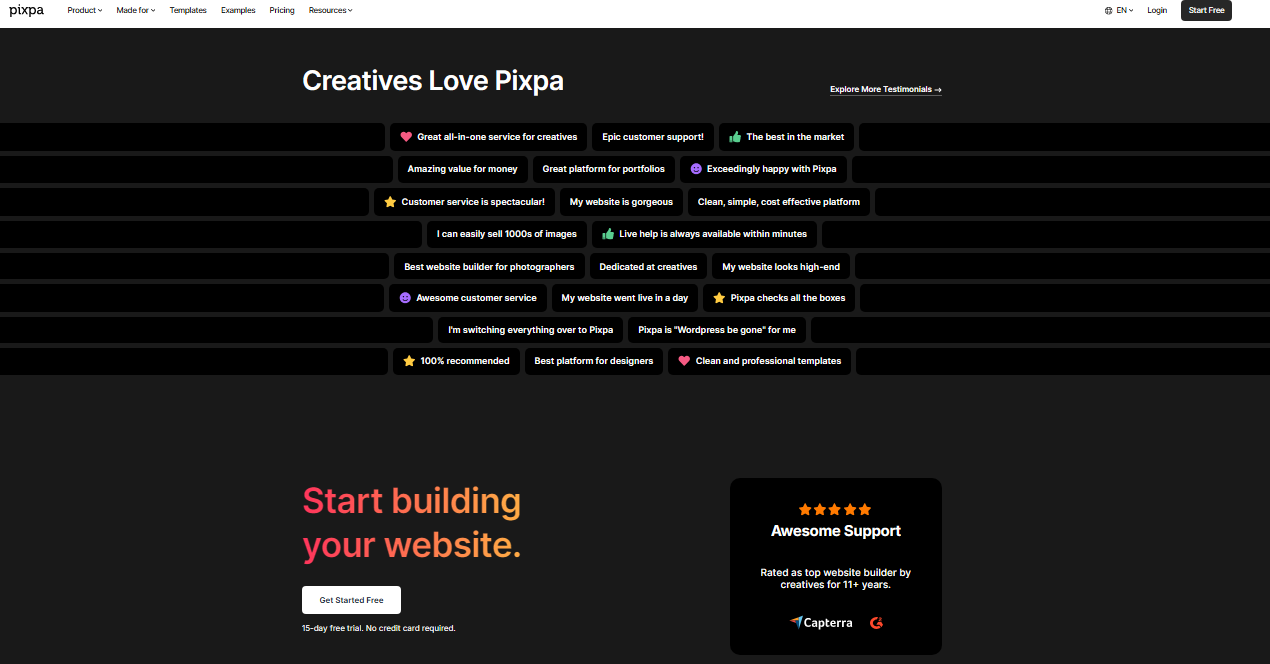
SSL certificates are the first defense against website threats. They encrypt data between your site and visitors. This stops hackers and keeps your info safe. Both Pixpa and Shopify offer SSL certificates to protect your data.
Shopify really focuses on website security. Being a big platform, they spend a lot on security. They have automatic updates, fraud protection, and watch for security holes.
Pixpa also has top-notch security. They use many layers to protect your site, like secure payments and backups. So, your website and online store are safe from digital dangers.
Both platforms offer great security features. They have:
- Encrypted payment systems
- Regular security updates
- Protection against web threats
- Automatic backups
When picking between Pixpa and Shopify, think about security first. Both are secure, but your business needs might sway your choice.
Choosing the right platform can make a big difference. Photographers saw a 600% profit increase after making a website. Pixpa offers 24/7 support, 46 app integrations, and a 15-day trial without cost.
Your choice should consider technical needs, budget, and future goals. Shopify is strong in ecommerce, but Pixpa is better for creative types. Think about what you need, try out the platforms, and pick the best fit for your business.
The best platform does more than offer features. It supports your creative vision and growth. Take your time to explore and choose a platform that will help your business grow.
.
.
.
.
.
END
Pixpa vs Shopify shows two different ways to help businesses online. Shopify has millions of merchants and billions in sales. Pixpa focuses on creative professionals with custom solutions.
We'll look at pricing, design, marketing tools, and performance. This is important for photographers, artists, and small business owners. Knowing the differences can help you choose wisely.
Shopify has a wide app ecosystem, while Pixpa has creative tools. Both have strong points for your digital strategy. We'll explore their strengths, weaknesses, and special features. This will help you pick the best website builder for 2025.
Understanding Platform Fundamentals
Exploring website creation platforms can seem overwhelming. Ecommerce platform basics have changed how businesses start online. They offer tools for entrepreneurs and creatives.At the heart of online stores are platforms that make building websites easy. Shopify has over 800,000 online stores worldwide. It gives businesses strong tools for their digital stores. These platforms help users create professional sites without needing to know a lot about tech.
When picking an ecommerce platform, creatives should look at important features. Things like managing products, secure payments, and easy orders are key. Pixpa, made for photographers and designers, offers special features for selling and showing work.
Platforms are made for different people. Shopify is for many businesses, while Pixpa is for creatives who need easy-to-use sites. The right platform can make your online work easier and more beautiful.
Knowing about these basics helps entrepreneurs choose wisely for their online space. Whether you're a photographer, designer, or small business owner, the right platform can change your online success.

Pixpa vs Shopify: Direct Comparison
When looking at ecommerce platforms, creatives have to choose between Pixpa and Shopify. Both are great for showing off work and selling online.Pixpa is made for creatives, offering 200+ visually appealing templates for photographers, artists, and designers. Its drag-and-drop editor makes it easy to customize, making it a top choice for visual pros.
Shopify, on the other hand, has more advanced ecommerce features. It's better for growing businesses that need complex online stores.
Pixpa is perfect for creatives who want to sell their work. It has 25+ customizable gallery layouts for photographers and artists.
Pricing is different too. Pixpa starts at $3.60 a month, keeping all profits. Shopify has more plans for various business sizes.
Both support mobile designs and marketing tools. But Shopify has better SEO and marketing for big businesses. Pixpa is simpler, great for solo creators and small businesses.
Pricing Structure Analysis
Pixpa and Shopify have different pricing plans for online businesses and creative professionals. Pixpa starts at just $3.60 per month if you pay every six months. This makes it a great choice for those watching their budget.Shopify's prices range from $5 to $299 a month. Each platform offers something special for different needs. Pixpa has four plans: Basic, Creator, Professional, and Advanced. Prices go from $4.80 to $25 a month.
Pixpa lets you try it for 15 days and offers a 30-day money-back guarantee. Shopify's trial is shorter, at 3 days. But it has more features and payment solutions. Pixpa is great for design-focused websites, with over 130 responsive templates.
Transaction fees can really affect your profits. Pixpa doesn't charge any fees, but Shopify does on some plans. This is important for small businesses and solo creators who want to keep more of their earnings.
Both platforms have high ratings from users. Pixpa has a 4.8 out of 5 from 325 reviews. Your choice will depend on your business needs, budget, and what features you want.

Design and Customization Options
Pixpa and Shopify take different paths in website templates and design flexibility. Pixpa scores 7.8 in design functionality. It offers visually stunning templates for artists and photographers.Pixpa's customization tools are easy to use, thanks to a drag-and-drop editor that doesn't need coding. Creative professionals can easily transform their online presence with 200+ mobile-optimized templates and 25+ customizable gallery layouts. This makes your website look professional without being too technical.
Shopify scores 8.2 in design features, with 150+ templates and a powerful theme editor. Although there are fewer templates, they offer great design flexibility for businesses. Shopify's website editor is rated 8 out of 10, showing it's user-friendly.
Both platforms have mobile-responsive designs. But Pixpa shines for creative professionals with its focus on visual aesthetics. Pixpa's ease of use rating is 8.4, making it easy for designers to personalize their sites without needing advanced technical skills.
Your choice depends on your design needs and goals. Pixpa is great for visual presentation, while Shopify is strong in commercial design options.

E-commerce Capabilities and Features
When exploring online store features, Pixpa and Shopify stand out for creative pros. Pixpa offers a full platform for selling physical goods, digital downloads, services, and images all in one place.Managing products is easy with these tools. Pixpa makes tracking inventory simple, helping creators manage their digital and physical products well. Shopify goes further with features like cart recovery and selling in multiple currencies.
Payment gateways are key for e-commerce success. Both platforms ensure secure checkout, making customers trust their purchases. Shopify offers many payment options, great for businesses aiming at global markets.
Marketing tools are a big plus for creative pros. Features like discount codes, shipping, and tax management make selling easier. Whether you're a photographer or a designer, these platforms support your online business.
Choosing the right platform is about finding balance. It depends on your business needs and how much complexity you can handle.

Portfolio Presentation Tools
Creative professionals need strong tools for their portfolio websites. Pixpa offers 25+ customizable gallery layouts for artists and photographers. These tools help users create stunning visual stories that grab potential clients' attention right away.*Client galleries* are key for professional photographers. Pixpa shines with password-protected galleries and personalized photo management. With over 150 mobile-friendly templates, photographers can show their work on any device.
Shopify is mainly for e-commerce, but it has features for creative professionals too. Photographers can use Shopify to make unique portfolio websites. But Pixpa's tools give photographers more control over their visual presentations.
Pixpa's strengths are clear when you look at its features. It offers a 15-day free trial to try advanced portfolio options. Photographers can try out different gallery layouts and see how they share client work.
Pixpa is a top choice for visual storytellers. It focuses on creative professionals, unlike general website builders. This makes Pixpa a great pick for those who want to showcase their work in a sophisticated way.
Marketing and SEO Features
Digital marketing tools are key when picking a website platform. Pixpa and Shopify help creative pros boost their online presence. They focus on SEO and social media integration.Pixpa has marketing tools made for photographers and artists. It has blogging tools for *content-rich websites* that draw in visitors. You can also tweak meta descriptions, page titles, and alt text for better search rankings.
Shopify offers more advanced marketing tools. With over 7,500 apps, you can grow your marketing toolkit. It's great for selling on Instagram and Facebook. Plus, it has strong email marketing and app integrations to find new clients.
Both Pixpa and Shopify aim for *seamless marketing strategies*. Pixpa is about clean, professional sites. Shopify is about broad marketing and selling in many places. Your choice depends on your business needs and how tech-savvy you are.
Pro tip: Use these platforms' SEO tools to get your site seen more. Whether you pick Pixpa's focused tools or Shopify's wide range, smart digital marketing can really help your online success.

Customer Support and Resources
Choosing a website platform can be tough. But, good technical support can make all the difference. Pixpa and Shopify offer top-notch customer service for creative pros and businesses.Pixpa's customer support is known for being super fast. Their help center is always ready to help, with live chat answers in just 3 minutes. This quick help lets users fix problems fast.
Shopify also offers great support. They have a huge help center with lots of resources. You can get help by email, live chat, or phone. They make sure you can solve any problem.
Both Pixpa and Shopify know how important learning is. They have lots of tutorials, videos, and help to get you started. This turns technical support into a chance to learn and grow.
Users will love how easy it is to get help. Whether it's a design issue or e-commerce questions, they offer simple support. You don't need to be a tech expert to get help.
When deciding between Pixpa and Shopify, think about their support. Look at what you need, how you like to communicate, and the tech challenges you might face. This will help you make the best choice.

Mobile Responsiveness and Performance
In today's digital world, having a mobile-friendly website is a must. Pixpa and Shopify get this, offering top-notch responsive designs. These designs work well on all kinds of devices.Pixpa shines with intelligent template optimization. Their sites change how they look based on the device you use. This means your site looks great on phones, tablets, or computers. Plus, pages load fast, keeping visitors interested.
Shopify also focuses on mobile-friendly themes for a smooth user experience. They know fast sites keep people coming back. With most internet use now on mobiles, they work hard to make sites fast and look good.
Looking at how well these platforms do, Pixpa scores high. It has a 93% overall score and an 84% hosting performance rating. These numbers mean better mobile experiences for your visitors.
When picking between Pixpa and Shopify, think about what you need for mobile. Both offer advanced tools for responsive designs. They make sure your site works well on all devices.
Integration Capabilities
Choosing a website platform is crucial. Third-party integrations can greatly affect your digital strategy. Pixpa and Shopify offer different ways to extend your platform, impacting your business workflow.Shopify has a huge app ecosystem with thousands of integrations. These cover marketing, sales, and productivity tools. *Creative professionals* can add social media, analytics, email marketing, and customer service apps easily.
Pixpa offers a smaller but more focused set of integrations. These are chosen to meet the needs of photographers, designers, and artists. Users can connect tools like Google Analytics, social media, and email marketing services to enhance their online presence.

Security Features and Reliability
Website security is key for online businesses and creative folks. Pixpa and Shopify get this, offering strong data protection. They help keep your digital stuff safe.SSL certificates are the first defense against website threats. They encrypt data between your site and visitors. This stops hackers and keeps your info safe. Both Pixpa and Shopify offer SSL certificates to protect your data.
Shopify really focuses on website security. Being a big platform, they spend a lot on security. They have automatic updates, fraud protection, and watch for security holes.
Pixpa also has top-notch security. They use many layers to protect your site, like secure payments and backups. So, your website and online store are safe from digital dangers.
Both platforms offer great security features. They have:
- Encrypted payment systems
- Regular security updates
- Protection against web threats
- Automatic backups
When picking between Pixpa and Shopify, think about security first. Both are secure, but your business needs might sway your choice.
Conclusion
Choosing the right website builder is crucial. Pixpa and Shopify have different strengths for online businesses. Pixpa is great for creative professionals who want to showcase and sell their work.Choosing the right platform can make a big difference. Photographers saw a 600% profit increase after making a website. Pixpa offers 24/7 support, 46 app integrations, and a 15-day trial without cost.
Your choice should consider technical needs, budget, and future goals. Shopify is strong in ecommerce, but Pixpa is better for creative types. Think about what you need, try out the platforms, and pick the best fit for your business.
The best platform does more than offer features. It supports your creative vision and growth. Take your time to explore and choose a platform that will help your business grow.
.
.
.
.
.
.
END
